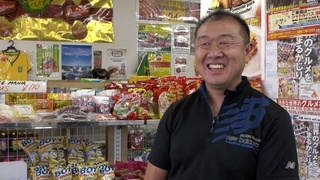Interviews
Winners and losers
Then, in 1941, at the end of July in Showa 16, the publication of newspapers in foreign languages was banned. As a result, the vast majority of Japanese people could not speak Portuguese, so they ended up not being able to understand the news in the Japanese newspapers. Then, the war started, and the only news from Japan they could hear was through shortwave radio, and when the war ended, people started arguing about whether Japan had won or lost. So things like winners and losers, something that would be unthinkable today, started happening.
Those who recognized that Japan had lost were the so-called intellectuals in the Japanese community who could speak Portuguese or English, but the Shindo Renmei and such ended up making those who said that Japan had lost seem like traitors, and so, looking back at it now, what happened was a bit, how should I put it, completely unreasonable. I believe about 23 people, the so-called recognition group, the defeat group, were killed, 150 to 160 people were injured, and the Brazilian government couldn't just leave it alone, so they arrested those people and sent them to a prison on an island called Anchetta, on the northern coast of Sao Paulo state.
In 2008, on the 100th anniversary, some people came forward and said, "I wonder who I killed." The message book that he had wrapped around his stomach is now on display at the Immigration Museum.
Date: September 19, 2019
Location: California, US
Interviewer: Yoko Nishimura
Contributed by: Watase Media Arts Center, Japanese American National Museum



